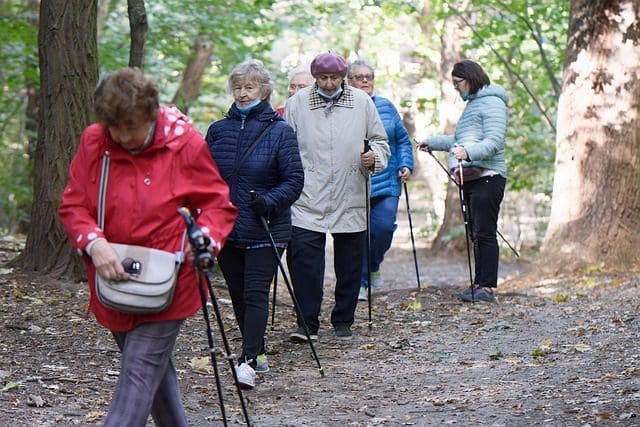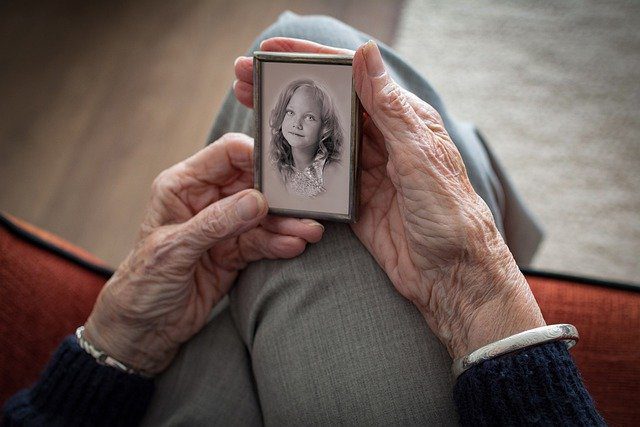It is natural to be protective of our family members, but as we see them aging and becoming more reliant on others, different instincts kick in, and we feel as though the roles have reversed from when we were kids. Taking care of elderly loved ones is not an easy task, and we shouldn’t feel as though we are completely alone in doing so, although we may not have siblings or cousins to help.
Here are five top tips to help you do the best you can for your loved ones as they get older.
Table of Contents
1. Set aside time
Money cannot buy time. It is perhaps your most precious commodity. Spending time with your elderly loved ones is something that you will both benefit from. While it can be challenging to see someone you love deteriorate in front of your eyes and, in the case of dementia, become someone completely unrecognizable, the positive impact this can have on your loved one’s life is unbeatable.
Whether you just sit and hold their hand for a while, reminiscing about the past, flicking through photo albums, or taking them out for a bit, enjoying coffee and cake, the time together will be fantastic.
2. Adapt their accommodation
If your elderly loved one is adamant about remaining in their home, you should aim to support them as best as possible to adapt their accommodation to ensure it is as safe as possible. Adding in handrails and ramps could be helpful if their mobility is limited or if you foresee it becoming more challenging as they either get older or a health condition deteriorates.
Likewise, a stairlift may be another option to consider. While they are not cheap, they can support people to maintain their independence for longer. If they are already struggling with their health, trying to find out about the best medical alert system to meet their needs is essential. This can mean that a device will be fitting to the wall, and they may wear something around their neck to press to inform someone that they need help.
A decent system could literally save their life. Bathing can also pose many problems and is a significant cause of accidents in the home. Either swapping the bath for a shower that the user can walk into and having a chair in there or getting one with a built-in seat can revolutionize their hygiene routine.
3. Shop for different furniture
Getting up from a chair can be a challenge. Investing in a chair that rises and falls, tilting to help the user stand up with less struggle, is a fantastic invention and supports independence. While they are far from cheap because of their mechanism, they are well worth the money. Often these items appear second-hand on the Facebook marketplace, for example, so keep an eye out.
Falls during the night can be common, too, so looking at a more supportive bed in terms of sides could be an option. Like those in the hospital, some beds allow the user to raise the head and the entire thing, depending on the position required. When a relative is having a challenging time with their health, this option can be life-changing for everyone involved.
4. Encourage physical activity
Physical activity is something we all know is good for us, but many use age as an excuse to reduce the amount of it in their routine. Of course, it does get harder, but adapting things that they enjoy doing should be encouraging. For example, if your elderly loved one like walking but struggles to go far, try driving them to a favorite location, a stately home perhaps, and have a shorter walk. Though it will not be as tiring, it will be rewarding and enjoyable. Seeing interesting things tricks the mind into forgetting that the body is actually doing exercise.

If music is a big thing in your loved one’s life, encourage them to put on their favorite tunes and have a little dance now and then. It doesn’t have to be full-on raving of headbanging, but a little bit of swaying to and fro or even waving arms and clapping gets the heart rate up a little bit and is good for the mind and body.
There are even low-impact exercise class options that encourage physical fitness and socializing. Zumba Gold and seated Zumba Gold are both fantastic choices. Aqua fitness classes are also a fantastic way of keeping the body active. The water ensures that there is less pressure on joints that many older people have issues with.
5. Support a healthy diet
Just because someone is in the later stages of their life does not mean they should forget about healthy eating habits. In fact, some would say it is more important than ever to adopt ways that support a positive relationship with food, especially so for the growing number of people diagnosed with Type 2 diabetes. Though your loved one may no longer have as much patience or the dexterity to prepare the meals they once loved to cook, supporting them to enjoy a wide variety of foods and meals will be beneficial to them. You may wish to batch cook and put some meals in the freezer for them.
Alternatively, you could plate up a meal of yours for them regularly. Meals on wheels services operate in many places, ensuring that they will receive a hot and wholesome meal daily. However, especially if they live alone, spending time with others in a mealtime situation does them the most good. Rather than taking food to them all the time, why not make it a regular thing that they visit your home or you take them out for a meal? This will ensure that they get the human contact that they require just as much as they need healthy food.
Featured Image by Kieran MacAuliffe from Pixabay




